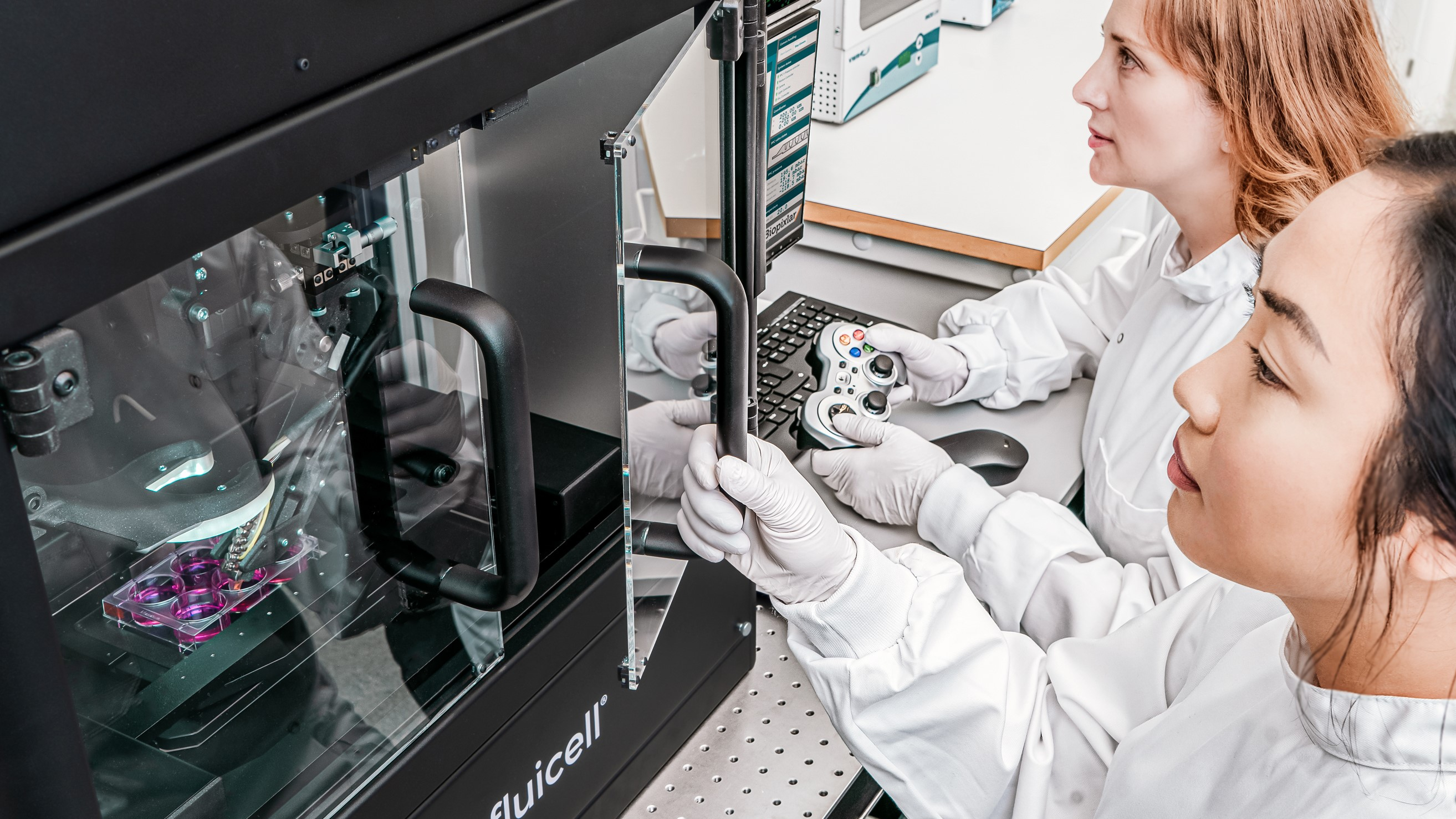This expensive 3D bioprinter is controlled by a $10 gamepad
Taking gamification to new levels (sort of)

Sign up for breaking news, reviews, opinion, top tech deals, and more.
You are now subscribed
Your newsletter sign-up was successful
A new high-resolution 3D bioprinter capable of producing tissue models for all manner of medical research has a highly novel control method – one which you’d normally find attached to a games console.
Yes, the Biopixlar printer from Fluicell has an innovative interface which uses a gamepad controller.
- 3D printing could also help to train surgeons
- Best home printer 2019: the top printers for home use
- Here are the best 3D printers of 2019
Biopixlar is capable of printing complex biological tissue which mimics that found in human organs, and it can be used for all manner of research and drug development purposes.
The 3D printer allows for the production of multiple cell types in one run, and it includes a micromanipulator arm plus a motorized stage to position the printhead and sample with high-precision, 3D Printing Industry reports.
Research platform
The device – which is billed as a ‘fully integrated research/discovery platform’ – offers a user-friendly graphical interface, and the gamepad is used to position the printhead and deposit cells.
Biopixlar is a gel-free printer, with the company noting that it uses “direct printing of cell suspension without the need for [a] gel matrix”.
The 3D printer has been in beta testing for two months, and Fluicell says it is now developing protocols to print different types of nerve cells.
Sign up to the TechRadar Pro newsletter to get all the top news, opinion, features and guidance your business needs to succeed!
Printing tissue for research into diseases and testing the efficacy of drugs is not just cost-effective, but also a big step forward on the ethics front, in terms of avoiding testing on animals.
Fluicell hasn’t yet put a price tag on the new Biopixlar printer, although you will likely be paying a fair old premium to be on the cutting-edge of bioprinting, naturally enough.
As we’ve seen recently, there are a number of different innovative takes on bioprinting being developed, including the use of ‘aqueous architectures’ for 3D-printing human organs.
- Best medical alert systems of 2019
Darren is a freelancer writing news and features for TechRadar (and occasionally T3) across a broad range of computing topics including CPUs, GPUs, various other hardware, VPNs, antivirus and more. He has written about tech for the best part of three decades, and writes books in his spare time (his debut novel - 'I Know What You Did Last Supper' - was published by Hachette UK in 2013).